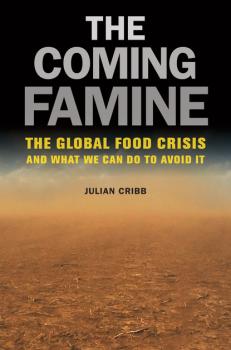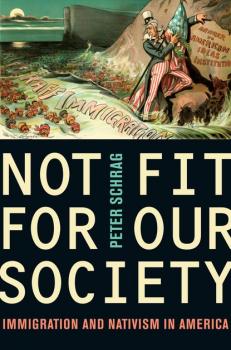MREADZ.COM - много разных книг на любой вкус
Скачивание или чтение онлайн электронных книг.From Demon to Darling
Richard Mendelson brings together his expertise as both a Napa Valley lawyer and a winemaker into this accessible overview of American wine law from colonial times to the present. It is a story of fits and starts that provides a fascinating chronicle of the history of wine in the United States told through the lens of the law. From the country's early support for wine as a beverage to the moral and religious fervor that resulted in Prohibition and to the governmental controls that followed Repeal, Mendelson takes us to the present day—and to the emergence of an authentic and significant wine culture. He explains how current laws shape the wine industry in such areas as pricing and taxation, licensing, appellations, health claims and warnings, labeling, and domestic and international commerce. As he explores these and other legal and policy issues, Mendelson lucidly highlights the concerns that have made wine alternatively the demon or the darling of American society—and at the same time illuminates the ways in which lives and livelihoods are affected by the rise and fall of social movements.
Danger to Self
The psychiatric emergency room, a fast-paced combat zone with pressure to match, thrusts its medical providers into the outland of human experience where they must respond rapidly and decisively in spite of uncertainty and, very often, danger. In this lively first-person narrative, Paul R. Linde takes readers behind the scenes at an urban psychiatric emergency room, with all its chaos and pathos, where we witness mental health professionals doing their best to alleviate suffering and repair shattered lives. As he and his colleagues encounter patients who are hallucinating, drunk, catatonic, aggressive, suicidal, high on drugs, paranoid, and physically sick, Linde examines the many ethical, legal, moral, and medical issues that confront today's psychiatric providers. He describes a profession under siege from the outside—health insurance companies, the pharmaceutical industry, government regulators, and even «patients' rights» advocates—and from the inside—biomedical and academic psychiatrists who have forgotten to care for the patient and have instead become checklist-marking pill-peddlers. While lifting the veil on a crucial area of psychiatry that is as real as it gets, <i>Danger to Self</i> also injects a healthy dose of compassion into the practice of medicine and psychiatry.
Soccer Empire
When France both hosted and won the World Cup in 1998, the face of its star player, Zinedine Zidane, the son of Algerian immigrants, was projected onto the Arc de Triomphe. During the 2006 World Cup finals, Zidane stunned the country by ending his spectacular career with an assault on an Italian player. In <i>Soccer Empire</i>, Laurent Dubois illuminates the connections between empire and sport by tracing the story of World Cup soccer, from the Cup’s French origins in the 1930s to Africa and the Caribbean and back again. As he vividly recounts the lives of two of soccer’s most electrifying players, Zidane and his outspoken teammate, Lilian Thuram, Dubois deepens our understanding of the legacies of empire that persist in Europe and brilliantly captures the power of soccer to change the nation and the world.
Orthodox by Design
Orthodox by Design , a groundbreaking exploration of religion and media, examines ArtScroll, the world’s largest Orthodox Jewish publishing house, purveyor of handsomely designed editions of sacred texts and a major cultural force in contemporary Jewish public life. In the first in-depth study of the ArtScroll revolution, Jeremy Stolow traces the ubiquity of ArtScroll books in local retail markets, synagogues, libraries, and the lives of ordinary users. Synthesizing field research conducted in three local Jewish scenes where ArtScroll books have had an impact—Toronto, London, and New York—along with close readings of key ArtScroll texts, promotional materials, and the Jewish blogosphere, he shows how the use of these books reflects a broader cultural shift in the authority and public influence of Orthodox Judaism. Playing with the concept of design, Stolow’s study also outlines a fresh theoretical approach to print culture and illuminates how evolving technologies, material forms, and styles of mediated communication contribute to new patterns of religious identification, practice, and power.Finalist for the National Jewish Book Award in the scholarship category, Jewish Book Council
Nature's Clocks
"Radioactivity is like a clock that never needs adjusting," writes Doug Macdougall. «It would be hard to design a more reliable timekeeper.» In <I>Nature's Clocks, </I>Macdougall tells how scientists who were seeking to understand the past arrived at the ingenious techniques they now use to determine the age of objects and organisms. By examining radiocarbon (C-14) dating—the best known of these methods—and several other techniques that geologists use to decode the distant past, Macdougall unwraps the last century's advances, explaining how they reveal the age of our fossil ancestors such as «Lucy,» the timing of the dinosaurs' extinction, and the precise ages of tiny mineral grains that date from the beginning of the earth's history. In lively and accessible prose, he describes how the science of geochronology has developed and flourished. Relating these advances through the stories of the scientists themselves—James Hutton, William Smith, Arthur Holmes, Ernest Rutherford, Willard Libby, and Clair Patterson—Macdougall shows how they used ingenuity and inspiration to construct one of modern science's most significant accomplishments: a timescale for the earth's evolution and human prehistory.
The Queen of Fats
A nutritional whodunit that takes readers from Greenland to Africa to Israel, <i>The Queen of Fats</i> gives a fascinating account of how we have become deficient in a nutrient that is essential for good health: the fatty acids known as omega-3s. Writing with intelligence and passion, Susan Allport tells the story of these vital fats, which are abundant in greens and fish, among other foods. She describes how scientists came to understand the role of omega-3s in our diet, why commercial processing has removed them from the food we eat, and what the tremendous consequences have been for our health. In many Western countries, epidemics of inflammatory diseases and metabolic disorders have been traced to omega-3 deficiencies. <i>The Queen of Fats </i>provides information for every consumer who wants to reduce the risk of heart disease, cancer, arthritis, and obesity and to improve brain function and overall health. This important and compelling investigation into the discovery, science, and politics of omega-3s will transform our thinking about what we should be eating.<br /><br /><b>* Includes steps you can take to add omega-3s to your diet<br /><br />* Shows why eating fish is not the only way, or even the best way, to increase omega-3s.<br /><br />* Provides a new way to understand the complex advice about the role and importance of fats in the body<br /><br />* Explains how and why the food industry has created a deadly imbalance of fats in our foods<br /><br />* Shows how omega-3s can be reintroduced to our diet through food enrichment and changes in the feeding of livestock</b>
Edward Said
Edward W. Said (1935–2003) ranks as one of the most preeminent public intellectuals of our time. Through his literary criticism, his advocacy for the Palestinian cause, and his groundbreaking book <i>Orientalism,</i> Said elegantly enriched public discourse by unsettling the status quo. This indispensable volume, the most comprehensive and wide-ranging resource on Edward Said’s life and work, spans his broad legacy both within and beyond the academy. The book brings together contributions from thirty-one luminaries—leading scholars, critics, writers, and activists—to engage Said’s provocative ideas. Their essays and interviews explore the key themes of emancipation and representation through the prisms of postcolonial theory, literature, music, philosophy, and cultural studies.<br /><br />Contributors: Bill Ashcroft, Ben Conisbee Baer, Daniel Barenboim, Timothy Brennan, Noam Chomsky, Denise DeCaires-Narain, Nicholas Dirks, Marc H. Ellis, Rokus de Groot, Sabry Hafez, Abdirahman A. Hussein, Ardi Imseis, Adel Iskandar, Ghada Karmi, Katherine Callen King, Joseph Massad, W. J. T. Mitchell, Laura Nader, Ilan Pappe, Benita Parry, Rajagopalan Radhakrishnan, Jahan Ramazani, Jacqueline Rose, Lecia Rosenthal, Hakem Rustom, Avi Shlaim, Ella Habiba Shohat, Robert Spencer, Gayatri Chakravorty Spivak, Anastasia Valassopoulos, Asha Varadharajan, Michael Wood
Drop That Knowledge
This is the first book to take us inside Youth Radio for a fascinating, behind-the-scenes look at a unique, Peabody Award-winning organization that produces distinctive content for outlets from National Public Radio to YouTube. Young people come to Youth Radio, headquartered in Oakland, California, from under-resourced public schools and neighborhoods in order to produce media that will transform both their own lives and the world around them.<i> Drop That Knowledge </i>weaves their compelling personal stories into a fresh framework for understanding the relationship between media, learning, and youth culture at a moment when all three spheres are undergoing dramatic change. The book emphasizes what is innovative and exciting in youth culture and offers concrete strategies for engaging and collaborating with diverse groups of young people on real-world initiatives in a range of settings, online and in real life.
The Coming Famine
In <i>The Coming Famine</i>, Julian Cribb lays out a vivid picture of impending planetary crisis–a global food shortage that threatens to hit by mid-century–that would dwarf any in our previous experience. Cribb's comprehensive assessment describes a dangerous confluence of shortages–of water, land, energy, technology, and knowledge–combined with the increased demand created by population and economic growth. Writing in brisk, accessible prose, Cribb explains how the food system interacts with the environment and with armed conflict, poverty, and other societal factors. He shows how high food prices and regional shortages are already sending shockwaves into the international community. But, far from outlining a doomsday scenario, <i>The Coming Famine</i> offers a strong and positive call to action, exploring the greatest issue of our age and providing practical suggestions for addressing each of the major challenges it raises.
Not Fit for Our Society
In a book of deep and telling ironies, Peter Schrag provides essential background for understanding the fractious debate over immigration. Covering the earliest days of the Republic to current events, Schrag sets the modern immigration controversy within the context of three centuries of debate over the same questions about who exactly is fit for citizenship. He finds that nativism has long colored our national history, and that the fear—and loathing—of newcomers has provided one of the faultlines of American cultural and political life. Schrag describes the eerie similarities between the race-based arguments for restricting Irish, German, Slav, Italian, Jewish, and Chinese immigrants in the past and the arguments for restricting Latinos and others today. He links the terrible history of eugenic «science» to ideas, individuals, and groups now at the forefront of the fight against rational immigration policies. <i>Not Fit for Our Society </i>makes a powerful case for understanding the complex, often paradoxical history of immigration restriction as we work through the issues that inform, and often distort, the debate over who can become a citizen, who decides, and on what basis.









